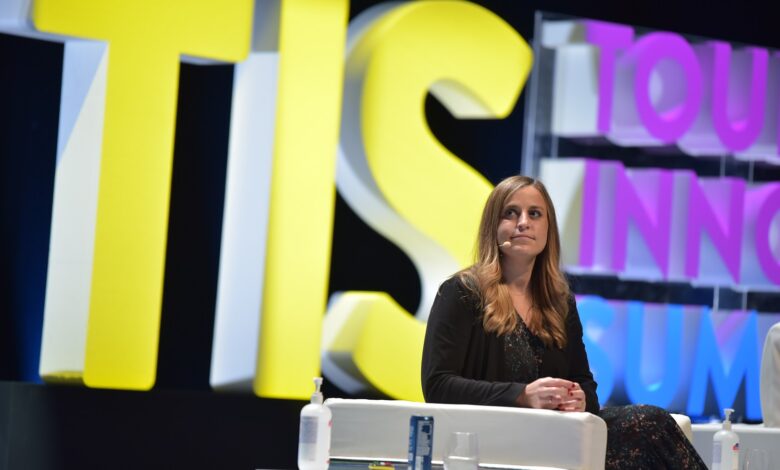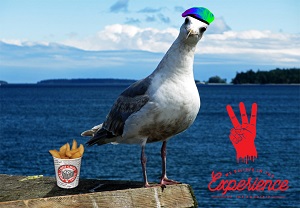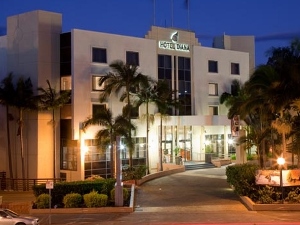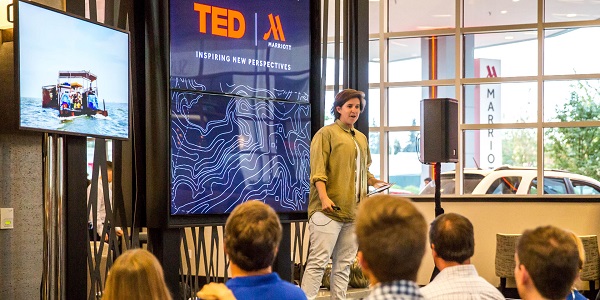
TIS 2022: The future of Global Tourism
Exclusive: Tourism Innovation Summit 2022 Event Director Silvia Avilés is in the hot seat
As hundreds of international travel experts and industry delegates gather in Seville, Spain, to map out a roadmap for the Global tourism sector over the next decade, AccomNews sat down with TIS 2022 Event Director Silvia Avilés.
Our latest AccomNews print issue is available now! Read it HERE.
What can attendees expect to see when attending TIS 2022?
Professionals from the tourism sector who attend TIS will find a large space where they can learn about the latest digital solutions from leading international technology companies so that they can incorporate them into their tourism businesses to be more efficient.
Thus, from November 2 to 4 in Seville, visitors will be able to discover the opportunities offered by new technologies, such as business Intelligence, data analytics, and Artificial Intelligence, to strengthen tourism businesses.
Likewise, through the Tourism Innovation Global Summit, the leading industry congress organised in the framework of TIS, the delegates will find out the latest trends in the industry and analyse where the travel sector is heading.
Who will be exhibiting at TIS2022?
More than 200 exhibiting firms from the technology industry will attend TIS to showcase the most innovative solutions for the tourism ecosystem to make it more competitive, efficient and environmentally friendly at the same time. Accenture, Amadeus, CaixaBank, City Sightseeing, The Data Appeal Company, EY, Forward Keys, Mabrian, MasterCard, and Telefónica Empresas are some of the exhibiting firms that will present their proposals to guide the tourism sector on the road to innovation and digitisation.

What issues will you be addressing this year in TIS?
This year we are going to analyse the management of tourist flows through the use of data, a very useful resource that allows taking advantage of technology to make decisions and offer better, more personalized experiences to tourists. In this sense, we will have several European projects related to data such as GAIA-X, promoted by the Secretary of State for Tourism and the Secretary of State for Digitization and Artificial Intelligence, or DATE.
Likewise, from TIS we will continue to emphasize the opportunities offered by digitization to tourism companies to face the current challenges of the sector and be more efficient. All this is against the background of making companies and destinations more sustainable through measures that help calculate the carbon impact or certifications that guarantee energy or environmental efficiency.
What do you think the global tourism industry needs to focus on for the next 12 months?
After a summer season that has been remarkable for its recovery, the tourism industry now has to focus on the challenges arising from the current difficult environment. The inflationary context or the conflict in Ukraine has meant a volatile tourism environment, something that can be solved with a competitive business strategy. To achieve this goal, technology becomes a key element with which to optimise businesses by, for example, using data to make better decisions and be more resilient.
Another way forward for the tourism sector is to achieve real decarbonisation of the planet, with new measures to promote sustainable travel and destinations.
Are there hurdles to international travel and how can we overcome them?
Covid-19 was a severe blow to the entire travel industry, which affected the stability of many companies. However, the global health backdrop and sense of security have greatly improved in recent months, bringing international travel back to normal. In fact, at the Tourism Innovation Global Summit, we will discuss the tourist protection measures that have recently been put in place to make tourism safe and avoid falling back into the mistakes that happened during the covid-19 crisis.
Last year you said that you wanted to see more sustainable, more personalised, more authentic and more inclusive experiences offered to travellers – has the industry succeeded and is there a location that has done it best?
Exactly, as you rightly say, the industry is now making the transition to more exclusive experiences and focusing on local offerings that put the human person at the centre. Thus, the “WOW effect” experienced by the user has changed in recent years by incorporating digital elements and solutions, considering environmental responsibility and proximity, and maintaining the genuineness of each destination. Likewise, inclusiveness is an added value that is increasingly gaining weight in the industry.
Petra, Dubrovnik, Gottenburg or Bologna are some of the many destinations that will be at TIS to explain how they are doing to successfully manage the change in tourism model, which includes the challenge of tourist transit or sustainability.
What does the future hold for the global tourism industry?
The next few years will be the years that consolidate the recovery of the tourism industry. As predicted by the World Travel & Tourism Council in its latest report on the economic impact of tourism, by the end of 2023 the sector will return to pre-pandemic levels, although it will not be until 2024 that all regions will fully recover, so the future looks set to bring positive figures.
In this context, tourism companies have to take advantage of the opportunities offered by technology and adapt to new trends, to gain efficiency and make a stronger international tourism ecosystem.
However, some threats that can affect the recovery, such as the rise in prices, so that solutions such as Business Intelligence become essential to know the state of the sector and act following real information in line with the situation at any given time.
Mandy has over 17 years of accommodation and tourism industry writing experience and is Editor of AccomNews & Resort News, Publisher of SchoolNews & Director of Multimedia Pty Ltd. She is a retired registered nurse with a 25-year NHS career that followed a few unforgettable years in hotel housekeeping.







